Greg Eisenhauer
FedHFT: Efficient Federated Finetuning with Heterogeneous Edge Clients
Oct 15, 2025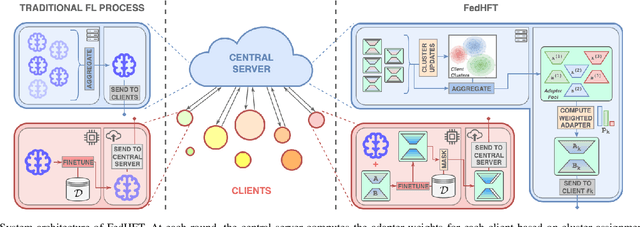
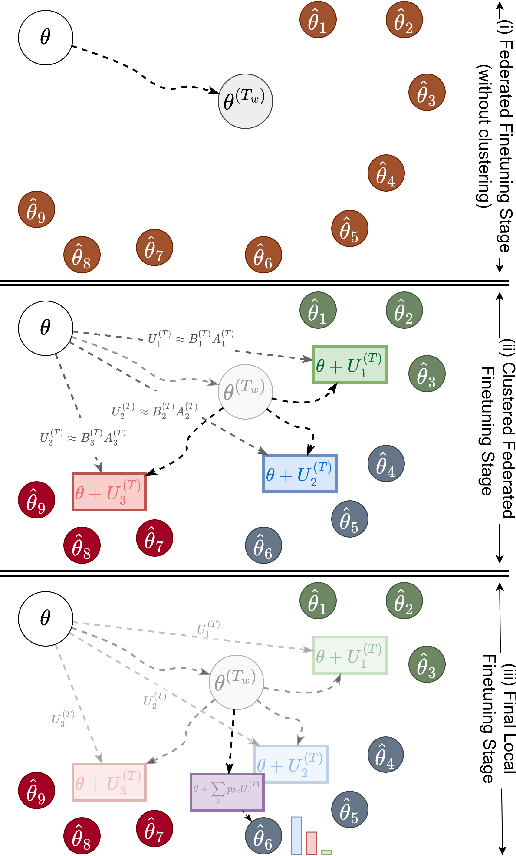
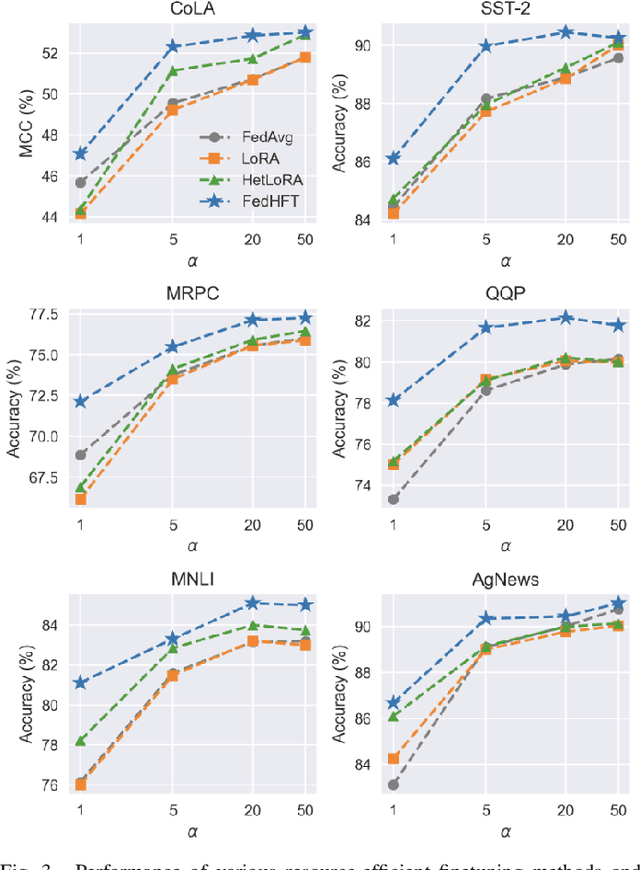
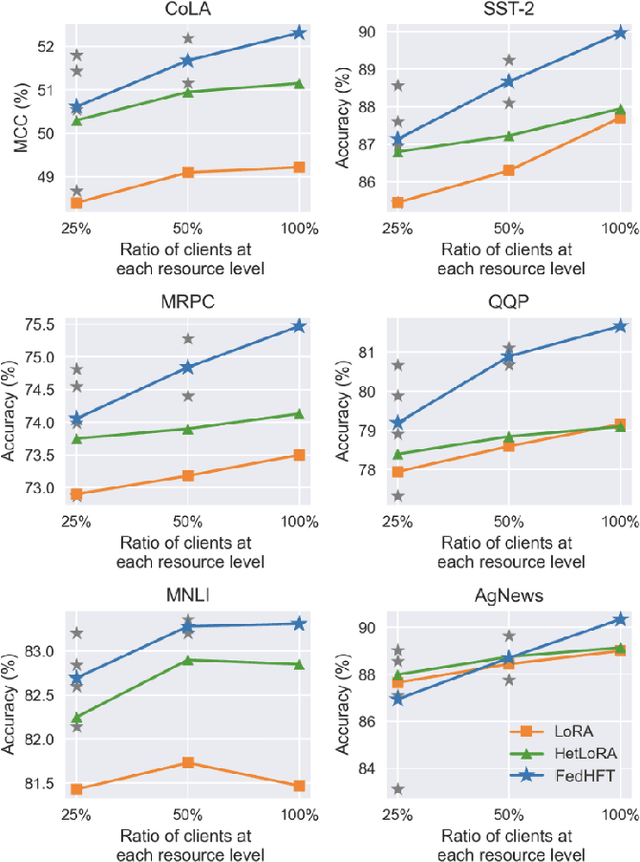
Abstract:Fine-tuning pre-trained large language models (LLMs) has become a common practice for personalized natural language understanding (NLU) applications on downstream tasks and domain-specific datasets. However, there are two main challenges: (i) limited and/or heterogeneous data for fine-tuning due to proprietary data confidentiality or privacy requirements, and (ii) varying computation resources available across participating clients such as edge devices. This paper presents FedHFT - an efficient and personalized federated fine-tuning framework to address both challenges. First, we introduce a mixture of masked adapters to handle resource heterogeneity across participating clients, enabling high-performance collaborative fine-tuning of pre-trained language model(s) across multiple clients in a distributed setting, while keeping proprietary data local. Second, we introduce a bi-level optimization approach to handle non-iid data distribution based on masked personalization and client clustering. Extensive experiments demonstrate significant performance and efficiency improvements over various natural language understanding tasks under data and resource heterogeneity compared to representative heterogeneous federated learning methods.
The Artificial Scientist -- in-transit Machine Learning of Plasma Simulations
Jan 06, 2025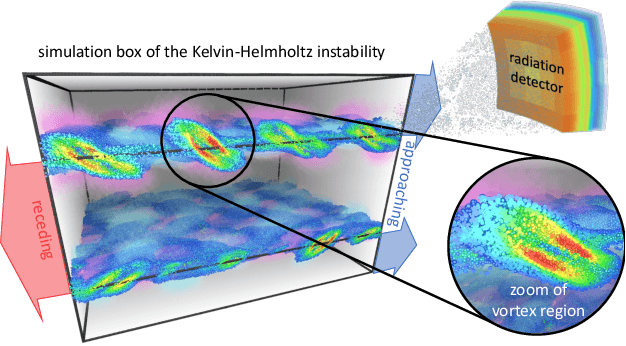
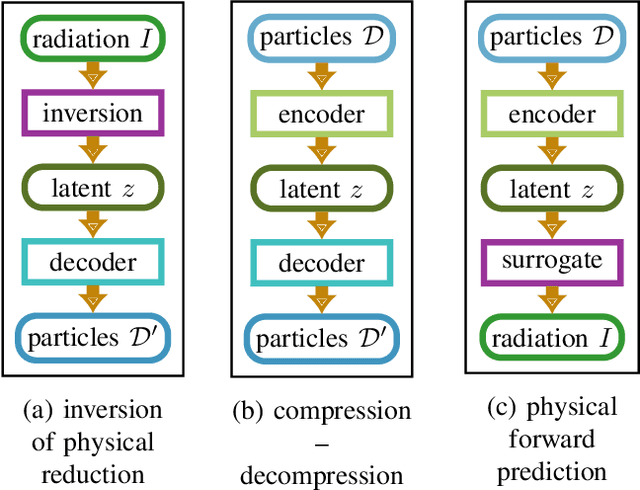
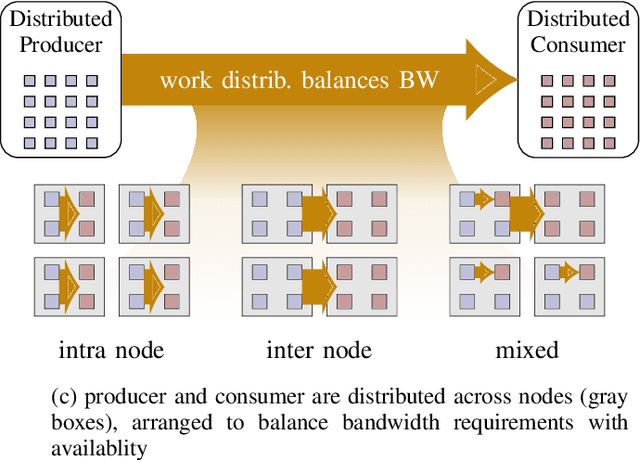
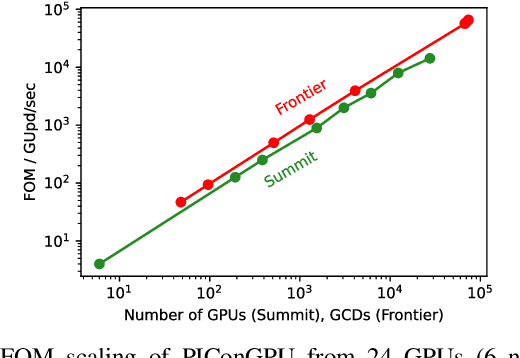
Abstract:Increasing HPC cluster sizes and large-scale simulations that produce petabytes of data per run, create massive IO and storage challenges for analysis. Deep learning-based techniques, in particular, make use of these amounts of domain data to extract patterns that help build scientific understanding. Here, we demonstrate a streaming workflow in which simulation data is streamed directly to a machine-learning (ML) framework, circumventing the file system bottleneck. Data is transformed in transit, asynchronously to the simulation and the training of the model. With the presented workflow, data operations can be performed in common and easy-to-use programming languages, freeing the application user from adapting the application output routines. As a proof-of-concept we consider a GPU accelerated particle-in-cell (PIConGPU) simulation of the Kelvin- Helmholtz instability (KHI). We employ experience replay to avoid catastrophic forgetting in learning from this non-steady process in a continual manner. We detail challenges addressed while porting and scaling to Frontier exascale system.
RAI4IoE: Responsible AI for Enabling the Internet of Energy
Sep 20, 2023



Abstract:This paper plans to develop an Equitable and Responsible AI framework with enabling techniques and algorithms for the Internet of Energy (IoE), in short, RAI4IoE. The energy sector is going through substantial changes fueled by two key drivers: building a zero-carbon energy sector and the digital transformation of the energy infrastructure. We expect to see the convergence of these two drivers resulting in the IoE, where renewable distributed energy resources (DERs), such as electric cars, storage batteries, wind turbines and photovoltaics (PV), can be connected and integrated for reliable energy distribution by leveraging advanced 5G-6G networks and AI technology. This allows DER owners as prosumers to participate in the energy market and derive economic incentives. DERs are inherently asset-driven and face equitable challenges (i.e., fair, diverse and inclusive). Without equitable access, privileged individuals, groups and organizations can participate and benefit at the cost of disadvantaged groups. The real-time management of DER resources not only brings out the equity problem to the IoE, it also collects highly sensitive location, time, activity dependent data, which requires to be handled responsibly (e.g., privacy, security and safety), for AI-enhanced predictions, optimization and prioritization services, and automated management of flexible resources. The vision of our project is to ensure equitable participation of the community members and responsible use of their data in IoE so that it could reap the benefits of advances in AI to provide safe, reliable and sustainable energy services.
 Add to Chrome
Add to Chrome Add to Firefox
Add to Firefox Add to Edge
Add to Edge